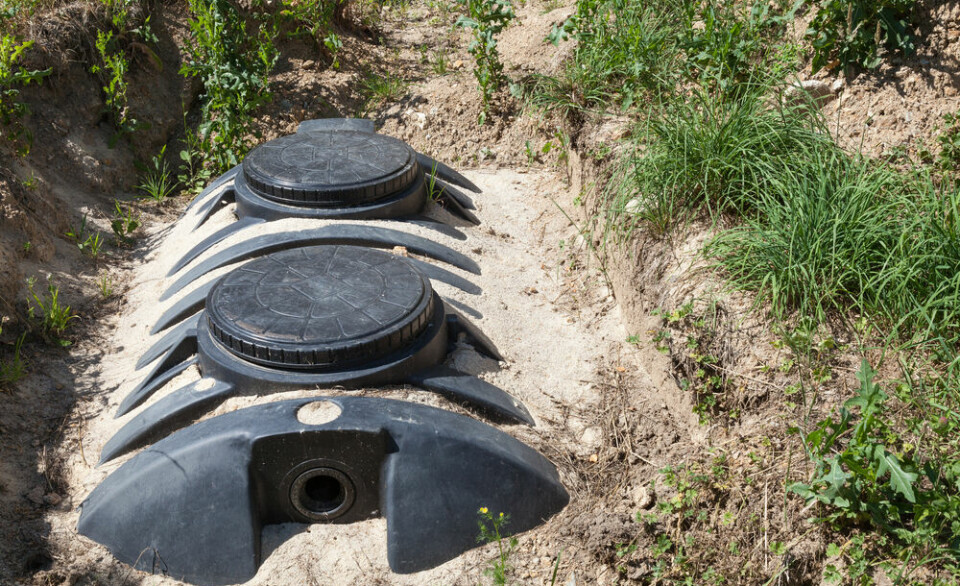-
Letters: The clash of 'America First' with French allies is a nightmare
Connexion reader notes with dismay the growing isolation of USA under President Trump
-
Comment: I live in France and voted for Brexit - I regret it
Legal consultant and former Brexit supporter Richard Gibbs reflects on the unforeseen challenges of Brexit
-
'Our teenage daughters are angry with us for moving to France'
Columnist Cynthia Spillman offers advice on how to deal with homesick family members
British Ambassador to France: Covid and climate high hopes
Every month the British Ambassador to France, Ed Llewellyn, shares an insight into his role. Here, read his column for February 2021

Happy New Year! Although this is my first printed column of the year, it’s not quite my first appearance in Connexion in 2021. I hope some of you may have seen my online interview, in which I discussed our exit from the EU and the changes we will see in Britain’s relationship with the EU and France.
New rules for travel and trade
Since January 1, there are new rules for how we travel and trade. The EU-UK Trade and Cooperation Agreement offers clarity on how we will move forward into this next chapter. It offers some continuity, too. I am pleased to confirm that your French EHIC (Carte Européenne d’Assurance Maladie – CEAM – in French) will give you access to medically necessary healthcare when you travel to the UK or EU countries. And when friends and family visit France, their EHICs will remain valid until they expire, after which they can apply for a Global Health Insurance Card (GHIC) for the same medical access. You can find details on the gov.uk Healthcare for UK nationals visiting the EU page.
Right now, though, coronavirus continues to make it hard to cross the Channel. Recently, new measures were introduced on both sides, requiring travellers to have tested negative for Covid-19 no more than 72 hours before departure. To enter the UK, PCR, LAMP and antigen tests are accepted – but it is important to look at the guidance on gov.uk. To enter France, only PCR tests are permitted. Remember, you will still have to self-isolate on arrival in either country, even with a negative test.
Almost half of all the world’s genome sequencing of coronavirus is carried out in the UK, with the data shared internationally. This allows us to monitor the virus’s development and put in place measures that will keep us safe.
Ultimately, vaccines will allow us to break free from Covid-19. The rollout in the UK inspires hope and allows us to look ahead to a future where we can travel freely again.
As of January 20, more than 4.6 million people have received their first dose of a Covid-19 vaccination in the UK. This is a formidable effort, by the NHS, the military, and all the volunteers who are making it happen.
The UK has pledged £1.3billion to support countries’ efforts to test and immunise their populations.
'The development and distribution of vaccines is a global effort, and a reminder that fighting this virus requires that we all work together'
The UK will play a leading role driving forward international cooperation across the board in 2021.
We are looking forward to hosting the Climate Summit – COP26 – in Glasgow in November, where we will build on the progress made in Paris five years ago.
The UK has set a high bar, with our commitment to reduce emissions by at least 68% by 2030.
In my previous article, I mentioned that the Prince of Wales and the Prime Minister spoke on the fifth anniversary of the Paris agreement, encouraging global action.
COP26 will be the largest summit the UK has ever hosted, bringing together representatives from nearly 200 countries, including world leaders, experts and campaigners.
The UK will also use our presidency of the G7 this year, including the summit in June, to ask leaders of the world’s leading democracies to seize the opportunity to “build back better” from coronavirus, and unite to make the future fairer, greener, and more prosperous.
The summit will take place in Carbis Bay in Cornwall. Hopefully, the waters will be as warm and tempting as those off Biarritz, site of the G7 summit in 2019.
Summer by the sea feels a long way off right now, particularly after the recent snow in Paris. But although we may still be in the middle of winter, brighter days are on the horizon. The snow served, too, as a reminder of the beauty of this wonderful city and country.
Related stories
British Ambassador to France: Happy and healthy New Year
























